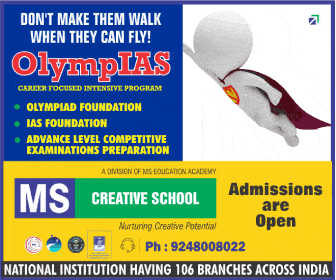[ad_1]
New Delhi: The Delhi High Court on Thursday set aside a Delhi University (DU) order debarring a Congress leader for a year for his alleged involvement in the on-campus screening of a banned BBC documentary on the 2002 Gujarat riots, saying the action was taken in violation of the principle of natural justice.
The documentary-‘India: The Modi Question’- was seen as critical of Prime Minister Narendra Modi who was the Gujarat chief minister when the communal conflagration engulfed large parts of the state.
Justice Purushaindra Kumar Kaurav said the DU’s administrative authority did not offer Lokesh Chugh, a PhD scholar and national secretary of the Congress’ students wing NSUI, an opportunity to be heard.
“The court is unable to sustain the impugned order dated March 10, 2023. Impugned order is set aside. The admission of the petitioner is restored. Necessary consequences will follow,” the judge said in the order.
“From a perusal of the facts of the present case, the court finds that the impugned order has been passed without offering opportunity of hearing to the petitioner or considering his explanation,” stated the judge while dealing with Chugh’s petition against the debarment order.
Attorney General (AG) R Venkataramani represented the university and opposed the petition.
The court clarified since the debarment order was being set aside for non-adherence to the principle of natural justice, the university is free to taken action against the petitioner in accordance with the procedure.
The AG claimed Chugh has approached the court with “unclean hands” and has made a “completely false” statement that he was not present at the time of the screening.
He said a committee was constituted to look into the incident and the petitioner, who was served a show-cause notice, was given a opportunity to explain his conduct.
The court observed the committee’s report records its findings but “does not deal with the explanation, if any, given by the petitioner” and the minutes of the meeting clearly indicate the petitioner’s presence but the “clarification given by him has not been mentioned or dealt with”.
It said there is no consideration of the submissions by the petitioner in the debarment order and he was also not specifically asked to explain the allegations.
“The perusal of impugned order indicates certain events that have taken place and as to whether petitioner was present at the time of screening of banned BBC documentary or not, it is not reflected,” the court said.
“The petitioner has not been specifically called upon to explain the allegations which form part of the impugned order. The reasons are necessary to be assigned by the administrative authority,” stated the court.
Senior advocate Kapil Sibal appeared for the petitioner. He argued that the debarment order cannot be sustained for non-compliance of the principle of natural justice and DU cannot “supplement” reasons behind it at this stage.
Lawyers Naman Joshi and Abhik Chimni also appeared for the petitioner.
Chugh had earlier urged the court to permit him to submit his Ph.D thesis before the retirement of his supervisor on April 30.
The AG asserted it was “untenable” to say that the DU acted in an arbitrary manner and a notice was already in existence which mandated prior intimation to the proctor if a protest was to be staged.
The attorney general contended the petitioner had the knowledge that the BBC documentary had been banned and the transcript (of video footage) showed him saying the ban must be “disobeyed.”
The petitioner had approached the high court earlier this month challenging the university’s decision to debar him for a year for his alleged involvement in the screening of the documentary — ‘India: The Modi Question’ — related to the 2002 Gujarat riots. The documentary was screened earlier this year.
The Centre had issued directions for blocking multiple YouTube videos and Twitter posts sharing links to the BBC documentary, which was described by the Ministry of External Affairs as a “propaganda piece” that lacks objectivity and reflects a colonial mindset.
The DU registrar had issued Chugh a memorandum in March under which he was not allowed to take part in “any university or college or departmental examination for one year”.
The DU defended its action before the high court and said the petitioner indulged in gross indiscipline which tarnished the image of a premier educational institution.
The university, in its reply filed to the petition, said it acted on the basis of a newspaper report on the ban on the BBC documentary.
It said several people, including the petitioner, assembled on the campus to screen the documentary in violation of Section 144 (issuance of prohibitory orders) of Code of Criminal Procedure imposed by police authorities.
“Petitioner had participated in the ‘showing’ of the banned BBC Documentary on 27.01.2023 at 4:00 PM in front of Gate No. 4, Faculty of Arts, University of Delhi which amounts to an act of indiscipline,” the reply filed by the Delhi University before the high court said.
The petitioner contended in his plea that he was not involved in the screening and, to his knowledge, there was no prohibition on the screening of the documentary.
The DU, however, said instead of concentrating on his research, the petitioner was “instrumental in inciting other students and indulging in petty politics”, which was detrimental to discipline and was causing disruption in academic functioning.
The reply said, after watching the videos, a committee constituted to probe the incident found that the “mastermind of the agitation was the petitioner” and he was seen actively being part of the unlawful assembly.
[ad_2]
#Modi #BBC #docu #sets #order #debarring #NSUI #leader #screening
( With inputs from www.siasat.com )
